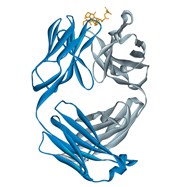Sustainability research – Transport
13 December 2021
University research is helping to make transport greener, more efficient and more sustainable using innovative and creative approaches to mapping, vehicles, fuel and materials.
How universities are addressing the challenge of developing greener and more efficient transport
University of Birmingham – investing in energy innovation
Quality-related (QR) research funding has been invested in a facility that is driving innovative energy technologies alongside Government and industry. The Tyesley Energy Park (TEP) energy innovation zone is shaping Birmingham’s future infrastructure for renewable heat and power, energy storage, clean transport fuels and advanced waste processing.
University of Sheffield – fuels for sustainable aviation
A new centre to lead research, innovation and commercial testing of sustainable aviation fuels will be the first of its kind in the UK. It will be the first centre in the UK able to capture CO₂, produce green hydrogen, convert them into sustainable aviation fuels and analyse their performance at the same location.
Newcastle University – scaling up electric transport
Collaborative research in electric transport is part of a national network of four cutting-edge Driving the Electric Revolution Industrialisation Centres, at the forefront of global efforts to develop the cars, planes and ships of the future.
Cardiff University and University of Manchester – turning waste into fuel
Cardiff University and the University of Manchester are partnering with BP and Johnson Matthey in a £9m project that aims to convert CO2, waste and sustainable biomass into clean and sustainable fuels and products that can be used across the energy and transportation sectors.
University of Cambridge – path to net zero flight
The Aviation Impact Accelerator (AIA), launched at COP26, brings together experts in aerospace, economics, policy, and climate science, to build an interactive evidence-based simulator to explore scenarios for achieving net zero flight.
University of Southampton – mapping potential for solar energy
A PhD student and entrepreneurial engineer has developed software that creates a 3D virtual city showing the levels of solar radiation on rooves throughout the year, to instantly see which buildings are most suitable for solar energy systems.
-
Hamir Patel
hamir.patel@russellgroup.ac.uk
020 3816 1316
-
Ben Moore
020 3816 1303
 X
X


